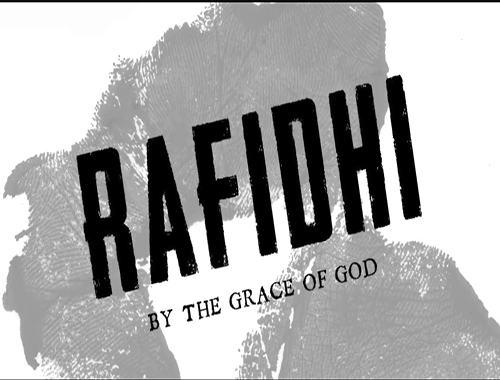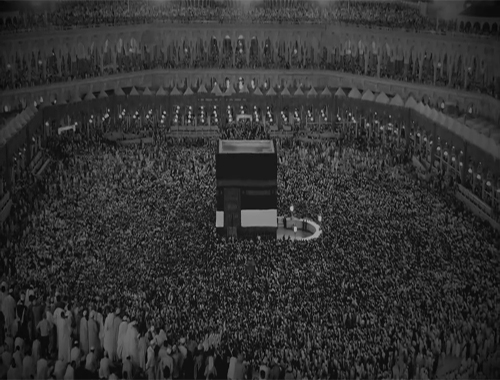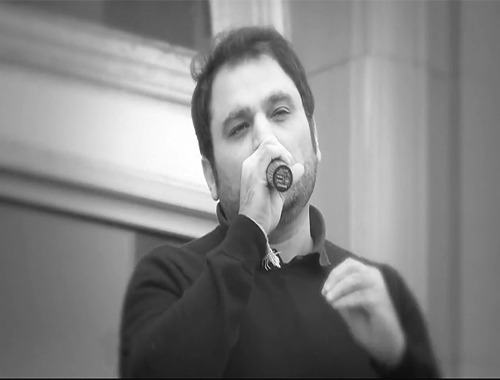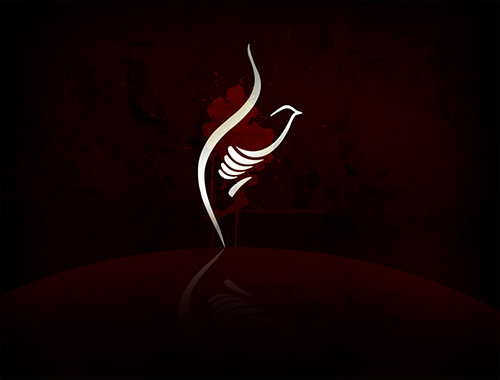Verses 12-21
- Details
- Hits: 2734
Sura Lail
(The Night)
No.92 (Verses 12-21)
(12)إِنَّ عَلَيْنَا لَلْهُدَى
(13)وَإِنَّ لَنَا لَلْآخِرَةَ وَالْأُولَى
(14)فَأَنذَرْتُكُمْ نَارًا تَلَظَّى
(15)لَا يَصْلَاهَا إِلَّا الْأَشْقَى
(16)الَّذِي كَذَّبَ وَتَوَلَّى
(17)وَسَيُجَنَّبُهَا الْأَتْقَى
(18)الَّذِي يُؤْتِي مَالَهُ يَتَزَكَّى
(19)وَمَا لِأَحَدٍ عِندَهُ مِن نِّعْمَةٍ تُجْزَى
(20)إِلَّا ابْتِغَاء وَجْهِ رَبِّهِ الْأَعْلَى
(21)وَلَسَوْفَ يَرْضَى
12.Verily We take upon Ourselves to guide,
13. And certainly to Us (belongs the End) the Hereafter and (the Beginning) the first (life).
14. Therefore, I warn you of a Fire that blazes:
15. None shall reach it but the reprobate,
16. who gives the lie (to Truth) and turns away,
17. And from which shall the most devoted to Allah be kept away,
18. Who gives away his wealth, purifying himself,
19. And bestows no favour on anyone for the sake of reward,
20. But only the desire to seek for the countenance of his Lord, the MostHigh,
21. And he shall soon be well-pleased.
Commentary:
Payment of Charity Causes the Fire to be Kept Away.
In the former verses, people were divided into two groups: pious, generous believers and impious, miserly unbelievers, and, then, their different fates were pointed out. Now, in the following verse, we are told that Allah guides us to the straight way, so, the choice is up to us without being obliged to it. It is our own duty to decide and act accordingly. Going along the right path is beneficial for us, ourselves; Allah has no need of it at all.
Verily We take upon Ourselves to guide.
This guidance is irrespective of guidance by way of genesis (through natural position and intellect) or guidance by way of religion (through books and traditions). All other necessary means of guidance have already been provided.
* * * *
And certainly to Us (belongs the End) the Hereafter and (the Beginning) the first (life).
'We are not in need of your Faith and obedience. Neither does your obedience profit Us nor does your sinning hurt Us.' All things and the means of guidance are provided, fully, for the use of Man to take benefit from.
According to this commentary 'guidance' means 'showing the way'. It is also probable that the purpose of these two verses is to encourage the generous believers, and to say that they are guided better by Allah and their way is easy for them in this world and the Next World, and since all this world and the Next World are in His possession, He is completely capable of this.
It is true that this world comes before the Next World but, because of its importance and because it is the main, final goal, the Hereafter is mentioned first.
* * * *
And since one of the branches of guidance is the act of warning, in the next verse it says:
Therefore, I warn you of a Fire that blazes:
The term /talazza/ is derived from /laza/ in the sense of 'a smokeless flame or fire', and we know that this kind of fire has a hotter heat. The term /laza/ has sometimes been used for Hell, itself.
* * * *
Then, it points to those who enter this blazing fire, saying:
None shall reach it but the reprobate,
* * * *
who gives the lie (to truth) and turns away,
So, the scale for happiness and unhappiness is Faith and disbelief, respectively, and the fruit that each of them brings forth. Allah, in His infinite Mercy, has provided full guidance to His creatures.
The commentators have a question and answer thus: The above mentioned verses indicate that the fire of Hell is only for disbelievers, but, this idea does not adapt to what the other verses of the Qur'an and the Islamic narrations say from which it is understood that the sinful believers will have a share from the fire, too. That is why some misled classes, taking these verses as their evidence, believe that with the existence of Faith sinning is possible without punishment.
In answering the question, two points should be made: The first is that the purpose of the phrase 'reaching the fire', here, is the same as 'being immortal in Fire' that we know it belongs to disbelievers, with reference to the verses that mean besides blasphemers, there are some who enter Hell.
The second point is that the idea that the above verses and the following ones say that being kept away from the fire is only for the most God-fearing people, i.e. on the whole the situations of the two groups are to be indicated thus: The miserly unbelievers and the generous, pious believers. From these two groups only the first one reaches Hell and the second group enters Heaven. Thus, the third group, that is, the sinful believers, is not in question at this point.
In other words, limitation, here, is 'an additional limitation'; as if Heaven is created only for the second group. This statement makes other objections clear in connection with the contradiction of the current verses and the next ones which restrict salvation to the righteous.
* * * *
Then, the words are about some people who are kept away from
this blazing Fire. It says:
* * * *
And from which shall the most devoted to Allah be kept away.
* * * *
He who gives away his wealth, purifying himself
The usage of the term /yatazakka/, is, in fact, for the meaning of 'purity of intention' since the Arabic root word /zaka/ implies both increase and purification in morals and wealth, as: Oftheir goods take alms, that so thou mightest purify and sanctify them; and pray on their behalf. Verily prayers are a source of security for them.... (Sura Tauba, No.9, verse 103).
* * * *
Then, to emphasize on their pure intention in their giving of charity, it says:
And bestow no favour on anyone for the sake of reward,
* * * *
But only the desire to seek for the countenance of his Lord, the Most High.
In other words, many charities or good deeds are done with a motive; that of returning someone else's favour and compensating and rewarding someone for some service done or expecting some reward in return for ones own good deeds. But the above mentioned verses denote that the sole motive in a pious, believing Man's mind is that he desires the Countenance or, Good Pleasure of the Lord, the Most High.
This countenance or /wajh/ 'face', here, with the meaning of 'essence', implies good pleasure or the approval of Allah.
The phrase 'his Lord, the Most High' shows that the act of 'giving charity' is done with a good understanding of His Lordship and that He is the Most High.
* * * *
Finally, in the last verse of the Sura, the unique great reward of these good believers is pointed out in a short sentence. It says:
And he shall soon be well-pleased.
Yes, one who is whole-heartedly devoted to Allah shall find Allah's pleasure as he expects; an absolute pleasure, vast, illuminated and conditionless which contains all the blessings, of His Bliss. It is something that, today. we cannot imagine at all; and what a grand, splendid blessing this reward is!
Some commentators have thought that the pronoun in the term /yarda/ may refer to Allah. If so, the verse means: 'And Allah shall soon be well-pleased (with him)' which is, itself, a great, unique gift that the Lord, the Most High, has bestowed upon His servant, and certainly such a pious believing servant will be well-pleased with Him, because these two correlate with each other. Sura Bayyinah,No. 98, Verse 8 verifies this idea. It says: ..Allah is well-pleased with them and they are well-pleased with Him..., and also the verse: Come back to your Lord well-pleased (with Him) and well-pleasing, (Sura Fajr, No. 89, verse 28). But, the first commentary is more appropriate.
Explanation:
The Moral Excellence of Spending in the Way of Allah:
Spending in the Way of Allah and giving financial help to the needy; especially to the respectable ones, with pure and good intention, is one of the themes that is repeatedly mentioned in the Holy Qur'an and is one of the characteristics of 'True Faith'.
There are many Islamic narrations on this subject so much so that the culture of the religion indicates that financial spending, which has no motive but for the countenance of Allah and which is free from any hypocrisy, reproach and nurt, is the best of deeds.
Here are some meaningful traditions on the matter:
1. A narration from Imam Baqir (p.b.u.h.) says: The best actions with Allah is the bringing of joy to the soul of a believing Muslim, feeding him until he is satisfied, or clearing his debt.(1)
2. The Messenger of Allah (p.b.u.h.) is narrated to have said in a tradition: Good temper, feeding (others) and blood shed (offered in sacrifice for the sake of Allah) are (signs) of Faith.(2)
3. Imam Sadiq (p.b.u.h.) is narrated to have said: I have not seen anything equal to visitlng a (Muslim) believer but that of feeding him, and it is for Allah to feed from Heaven the (believing) one who feeds a believer. (3)
4. In another tradition the holy Prophet (p.b.u.h.) is narrated to have answered the man who asked him what the best actions were: Feeding (others), and (saying) good words.(4)
Again, a tradition from the holy Prophet (p.b.u.h.) says: The one who maintains a Muslim family (entertaining them) for a day and a night's time, Allah forgives his sins.
Supplication:
O Lord! Give all of us the success of having a share of this great, good action.
O Lord! Cause the purity of our intention to be increased.
O Lord! We seek your Grace and Mercy so that You will be well-pleased with us and we will be well-pleased, too.
(1) Bihar-al-Anwar, vol. 74, p. 395, Traditions 35 and 38.
(2) Ibid.
(3) Usul-i-Kafi, vol. 2, Section on 'Feeding a Believer', Tradition 17.
(4) Bihar-al-Anwar, vol. 74, p. 388, Tradition 113.
The End of Sura Lail
(The Night)











